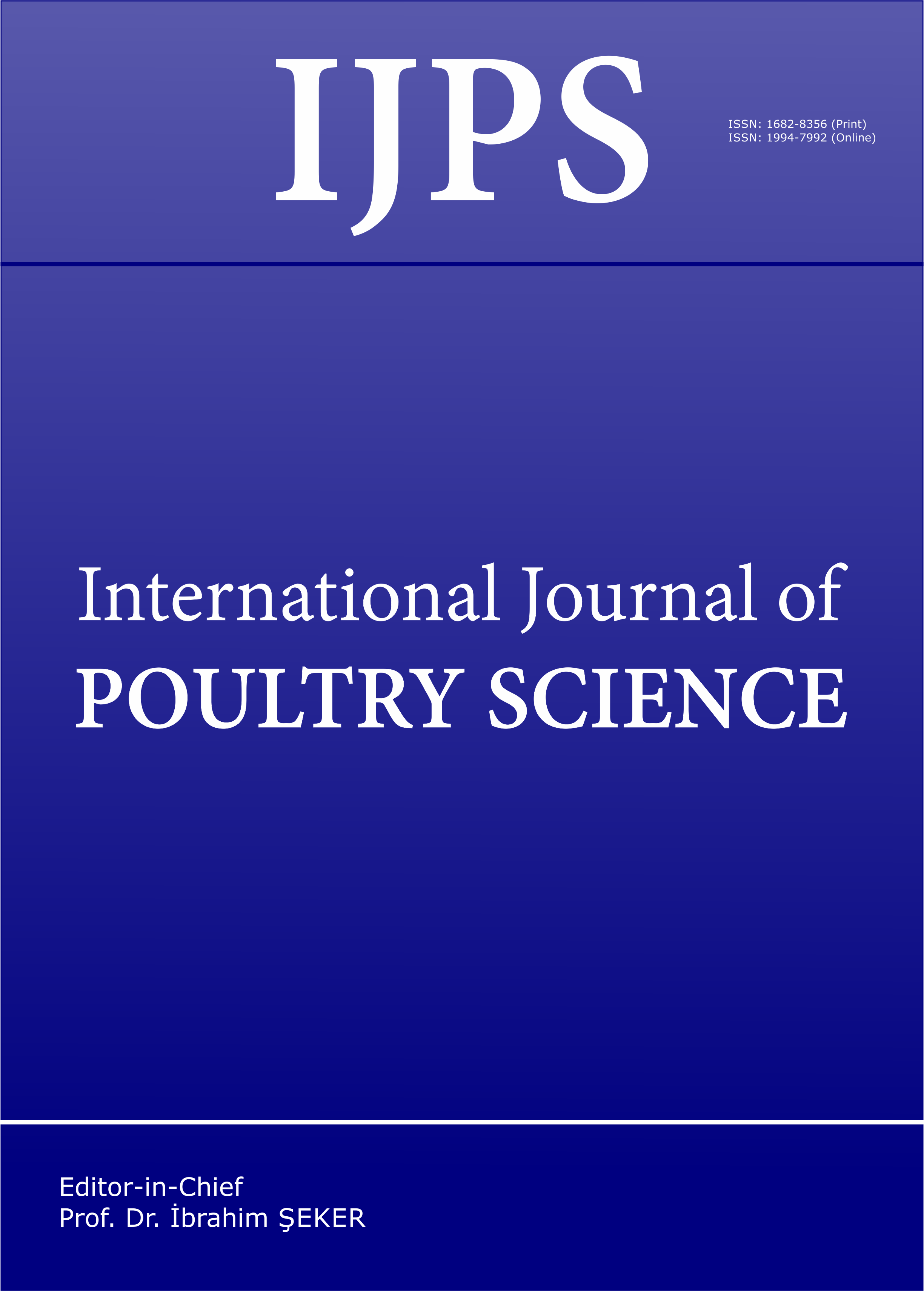Incubator Temperature and Oxygen Concentration at the Plateau Stage in Oxygen Consumption Affects Intestinal Maturation of Broiler Chicks
DOI:
https://doi.org/10.3923/ijps.2006.229.240Keywords:
Alkaline phosphatase, broiler chicks, intestinal maturation, maltaseAbstract
Incubator temperature and oxygen concentrations were tested as factors determining the intestinal maturation of two lines of broiler chickens. One line was a Low G line selected because its eggs display low eggshell conductance. The second line was a High G line that grew at a reduced rate and its eggs show high eggshell conductance values. All eggs were incubated normally until the 18th day of development or the beginning of the plateau stage in oxygen consumption. At that time the eggs were divided randomly and placed into experimental cabinets operating at 36, 37 38 or 39oC in experiment 1 or with 17, 19, 21 or 23% oxygen in experiment 2. In experiment 3, the best and worst conditions observed in experiments 1 and 2 were combined in a factorial arrangement. Body weight and intestinal maturation were measured by assaying for maltase and alkaline phosphatase activities in intestinal tissues. Increasing temperatures suppressed intestinal maturation whereas increasing oxygen concentrations enhanced intestinal maturation. When examined together in a factorial arrangement, it was clear that the effects of temperature and oxygen on the embryos were independent because they did not interact. The effects of temperature and oxygen were greater on Low G broiler embryos than they were on High G type embryos. It is concluded that incubator temperatures greater than 37oC, and oxygen concentrations less than 21% are detrimental to intestinal maturation in broiler chicks.
Downloads
Published
Issue
Section
License
Copyright (c) 2006 Asian Network for Scientific Information

This work is licensed under a Creative Commons Attribution 4.0 International License.
This is an open access article distributed under the terms of the Creative Commons Attribution License, which permits unrestricted use, distribution and reproduction in any medium, provided the original author and source are credited.

